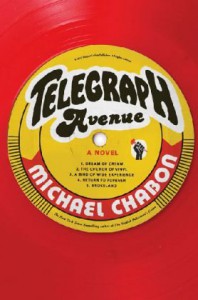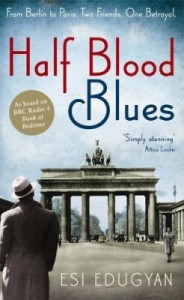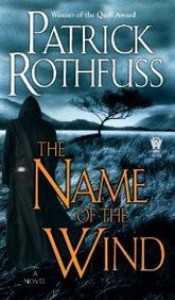It's Just, Like, My Opinion, Man.
A way for me to remember what I've read, when I've read it, and what I thought about it at the time.
HHhH

Meta-historical 'novel', 'infranovel', facts or fiction? Binet injects his struggle with historical accuracy into the story of the assassination of Reinhard Heydrich, the butcher of Prague, by Czech paratroopers in 1942.The writing is sharp, the story is fast paced, detailed and filled with tension. It's a wonder, therefore, that Binet felt the need to inject himself so completely into it.Binet's storytelling is crisp, and he builds the suspense nicely as the story reaches climax on the day that two protagonists await their quarry. Heydrich, in his hubris, commutes daily through occupied territory that he has subdued by mass murder, terror and enslavement, in an open car. His doom awaits at the hands of partisans, trained in England, dropped into their own country to be aided by the locals. We meet all of the major players on both sides as they move toward the inevitable collision on May 28th 1942.The story's narrator, however, is unreliable, as he mixes, in short bursts, his own doubts about the facts he is relating, into the text.He obsesses about the color of Heydrich's car; about the details of dialogue and whether he can trust his sources as he struggles to add details to the story he is telling.I found the style and the meta-context to be utterly distracting to an otherwise well told tale. The ultra short chapters were an annoyance as well. As history HHhH was great, as a novel, not so much, thus 3 stars only.
 The last of the great 'doorstop' books that I hadn't read (well there are still plenty of doorstop sized books out there, but not many are considered great).Wallace can be brilliant, and there are passages, and pages, and page-sized passages, that are thrilling to read; but, in the end, this is a fantastic 400 page masterpiece mired in the bulk of the extra 600 pages of masturbatory non sequiturs and rambling musings that disguise any sort of discernible plot.In light of DFW's demise, much of this book now seems prophetic, a thousand page cry for help, but the tortured genius could still have been aided, in this, by a strong editor.
The last of the great 'doorstop' books that I hadn't read (well there are still plenty of doorstop sized books out there, but not many are considered great).Wallace can be brilliant, and there are passages, and pages, and page-sized passages, that are thrilling to read; but, in the end, this is a fantastic 400 page masterpiece mired in the bulk of the extra 600 pages of masturbatory non sequiturs and rambling musings that disguise any sort of discernible plot.In light of DFW's demise, much of this book now seems prophetic, a thousand page cry for help, but the tortured genius could still have been aided, in this, by a strong editor.
Infinite Jest: A Novel
 The last of the great 'doorstop' books that I hadn't read (well there are still plenty of doorstop sized books out there, but not many are considered great).Wallace can be brilliant, and there are passages, and pages, and page-sized passages, that are thrilling to read; but, in the end, this is a fantastic 400 page masterpiece mired in the bulk of the extra 600 pages of masturbatory non sequiturs and rambling musings that disguise any sort of discernible plot.In light of DFW's demise, much of this book now seems prophetic, a thousand page cry for help, but the tortured genius could still have been aided, in this, by a strong editor.
The last of the great 'doorstop' books that I hadn't read (well there are still plenty of doorstop sized books out there, but not many are considered great).Wallace can be brilliant, and there are passages, and pages, and page-sized passages, that are thrilling to read; but, in the end, this is a fantastic 400 page masterpiece mired in the bulk of the extra 600 pages of masturbatory non sequiturs and rambling musings that disguise any sort of discernible plot.In light of DFW's demise, much of this book now seems prophetic, a thousand page cry for help, but the tortured genius could still have been aided, in this, by a strong editor.
Don't Let the Pigeon Drive the Bus!
 Meta-historical 'novel', 'infranovel', facts or fiction? Binet injects his struggle with historical accuracy into the story of the assassination of Reinhard Heydrich, the butcher of Prague, by Czech paratroopers in 1942.The writing is sharp, the story is fast paced, detailed and filled with tension. It's a wonder, therefore, that Binet felt the need to inject himself so completely into it.Binet's storytelling is crisp, and he builds the suspense nicely as the story reaches climax on the day that two protagonists await their quarry. Heydrich, in his hubris, commutes daily through occupied territory that he has subdued by mass murder, terror and enslavement, in an open car. His doom awaits at the hands of partisans, trained in England, dropped into their own country to be aided by the locals. We meet all of the major players on both sides as they move toward the inevitable collision on May 28th 1942.The story's narrator, however, is unreliable, as he mixes, in short bursts, his own doubts about the facts he is relating, into the text.He obsesses about the color of Heydrich's car; about the details of dialogue and whether he can trust his sources as he struggles to add details to the story he is telling.I found the style and the meta-context to be utterly distracting to an otherwise well told tale. The ultra short chapters were an annoyance as well. As history HHhH was great, as a novel, not so much, thus 3 stars only.
Meta-historical 'novel', 'infranovel', facts or fiction? Binet injects his struggle with historical accuracy into the story of the assassination of Reinhard Heydrich, the butcher of Prague, by Czech paratroopers in 1942.The writing is sharp, the story is fast paced, detailed and filled with tension. It's a wonder, therefore, that Binet felt the need to inject himself so completely into it.Binet's storytelling is crisp, and he builds the suspense nicely as the story reaches climax on the day that two protagonists await their quarry. Heydrich, in his hubris, commutes daily through occupied territory that he has subdued by mass murder, terror and enslavement, in an open car. His doom awaits at the hands of partisans, trained in England, dropped into their own country to be aided by the locals. We meet all of the major players on both sides as they move toward the inevitable collision on May 28th 1942.The story's narrator, however, is unreliable, as he mixes, in short bursts, his own doubts about the facts he is relating, into the text.He obsesses about the color of Heydrich's car; about the details of dialogue and whether he can trust his sources as he struggles to add details to the story he is telling.I found the style and the meta-context to be utterly distracting to an otherwise well told tale. The ultra short chapters were an annoyance as well. As history HHhH was great, as a novel, not so much, thus 3 stars only.
All Star Superman
 I read about one graphic novel per year, so I tend to choose rather selectively. There is a new Superman movie coming out this year and I have been watching Smallville, so I thought Superman would be a good subject to delve in to comic book wise.Grant Morrison is the author here, and is, justifiably, reknowned for his storytelling. every aspect of the Superman mythos is explored over the course of 12 episodes. The illustrations are fantastic as well.
I read about one graphic novel per year, so I tend to choose rather selectively. There is a new Superman movie coming out this year and I have been watching Smallville, so I thought Superman would be a good subject to delve in to comic book wise.Grant Morrison is the author here, and is, justifiably, reknowned for his storytelling. every aspect of the Superman mythos is explored over the course of 12 episodes. The illustrations are fantastic as well.
Telegraph Avenue
 Michael Chabon, onetime awesome author, has tried to write a Pynchon novel, and has failed. Zany character names, check; each paragraph brimming with cultural references, check; any other semblance to the depth and artistry that Thomas Pynchon brings to a novel, the box is empty.Michael Chabon is not a black man from the the east bay, and though it may be argued that that should not disqualify him from using that 'voice' to tell his story, in order to for him to pull it off without the whole exercise seeming like a lit-fic minstrel show, he was always going to have to paint a fine line. Instead he takes the ham-fisted paint roller approach to slap a multi-cultured patina on a rather boring story filled with characters neurotic enough to be on the Larry David show rather than Telegraph Avenue.
Michael Chabon, onetime awesome author, has tried to write a Pynchon novel, and has failed. Zany character names, check; each paragraph brimming with cultural references, check; any other semblance to the depth and artistry that Thomas Pynchon brings to a novel, the box is empty.Michael Chabon is not a black man from the the east bay, and though it may be argued that that should not disqualify him from using that 'voice' to tell his story, in order to for him to pull it off without the whole exercise seeming like a lit-fic minstrel show, he was always going to have to paint a fine line. Instead he takes the ham-fisted paint roller approach to slap a multi-cultured patina on a rather boring story filled with characters neurotic enough to be on the Larry David show rather than Telegraph Avenue.
Half Blood Blues
 Thoroughly unlikable and unsympathetic characters fail to carry what could have been a poignant story. The combination of the jazz age and the fall of paris creates an environment ripe for a hot blooded story of betrayal during wartime, but at no time did i ever sympathize with a single one of the characters. it left me flat.
Thoroughly unlikable and unsympathetic characters fail to carry what could have been a poignant story. The combination of the jazz age and the fall of paris creates an environment ripe for a hot blooded story of betrayal during wartime, but at no time did i ever sympathize with a single one of the characters. it left me flat.
Duncan the Wonder Dog
 Interesting. Max points for the subject matter, the nonlinearity and the heft, but lots of points taken away for the awful small fonts in such a giant doorstop of a book, it was difficult to read and not a pleasure for this alone.
Interesting. Max points for the subject matter, the nonlinearity and the heft, but lots of points taken away for the awful small fonts in such a giant doorstop of a book, it was difficult to read and not a pleasure for this alone.
Story Engineering
 Cleared my head, gave me a structured approach to storytelling that i lacked. motivational and informational.
Cleared my head, gave me a structured approach to storytelling that i lacked. motivational and informational.
Silver Sun
 I first read this book as a teenager (so 30 yrs ago or more) and it was a favorite. the story is still solid, even if the storytelling is juvenile and geared so much more to a YA audience. Still it remains a nice read and one that i will happily pass along to my kids.
I first read this book as a teenager (so 30 yrs ago or more) and it was a favorite. the story is still solid, even if the storytelling is juvenile and geared so much more to a YA audience. Still it remains a nice read and one that i will happily pass along to my kids.
The Name of the Wind (Kingkiller Chronicles, Day 1)
 Simply wonderful. Rothfuss' pacing, as he builds the characters, myths, settings and stories of this universe is masterful. Hopefully he has the end firmly in mind and does not make the same mistakes as so many of his predecessors. Two more volumes, neatly told, should suffice.
Simply wonderful. Rothfuss' pacing, as he builds the characters, myths, settings and stories of this universe is masterful. Hopefully he has the end firmly in mind and does not make the same mistakes as so many of his predecessors. Two more volumes, neatly told, should suffice.
Blind Descent: The Quest to Discover the Deepest Place on Earth
 An interesting subject nearly ruined by the writer's hyberbolic style. There was never a 'race' to find the world's deepest cave; what there was was a dedicated Ukrainian caving society exploring the world's deepest cave, and an intrepid megalomaniacal american caver trying to establish a mexican cave as the world's deepest (it's not even in the top 5) over the same 25 yr. period, whose story the author desperately wanted to tell. Both stories were interesting, and a better writer would have found a way to weave in the story of, perhaps, some of the other european speleologists who were establishing true records during this time as well, or interwoven the stories he was telling a bit more tightly so that the timelines of the two explorations would seem more akin to the race he was trying to make us believe was occurring.Tabor's prose is so full of hackneyed exaggeration that it's almost laughable at times how hard he tries to make every single scene a matter of life or death (we get it, caving is dangerous). He even resorts to ending every one of his 50 odd chapters with a sort of artificial cliff hanger, just to perpetuate the endless,and ultimately defeating, sense of impending doom that never materializes.
An interesting subject nearly ruined by the writer's hyberbolic style. There was never a 'race' to find the world's deepest cave; what there was was a dedicated Ukrainian caving society exploring the world's deepest cave, and an intrepid megalomaniacal american caver trying to establish a mexican cave as the world's deepest (it's not even in the top 5) over the same 25 yr. period, whose story the author desperately wanted to tell. Both stories were interesting, and a better writer would have found a way to weave in the story of, perhaps, some of the other european speleologists who were establishing true records during this time as well, or interwoven the stories he was telling a bit more tightly so that the timelines of the two explorations would seem more akin to the race he was trying to make us believe was occurring.Tabor's prose is so full of hackneyed exaggeration that it's almost laughable at times how hard he tries to make every single scene a matter of life or death (we get it, caving is dangerous). He even resorts to ending every one of his 50 odd chapters with a sort of artificial cliff hanger, just to perpetuate the endless,and ultimately defeating, sense of impending doom that never materializes.
Logicomix: An Epic Search for Truth
 Disappointed is the one word I would use to describe my experience with this book. It's hefty, and, on first glance, appears to be rather substantial; but the fact is, it ends up being a short story (perhaps it would fill 50 pages of conventional text) peppered mostly with illustrations of Bertrand Russell lighting a pipe.I am familiar with this story. I would guess that most readers interested enough in the characters (Russell, Wittgenstein, Godel) would be as well. The authors clearly state early on that Logicomix is not meant to be "Logic for Dummies", and it isn't; but its not much else either.The essence of the book (caution spoilers) is that Bertrand Russell, celebrated mathematician and philosopher and noted pacifist, is confronted, early in the 2nd World War, by isolationists hoping to have their position validated by a sound logical argument. Russell proceeds to tell them of his epic search for a language of truth (mathematics) to lay a firm foundation for expressing things in an objective universe. The authors, who liberally inject themselves into the narrative, then begin an argument over whether madness (a pervading theme in both Russell's life and his professional associations) is a product of logic or a symptom of the search for it.At this point i would have thought that the medium (illustration) of this work would have made itself felt, and that the authors would have taken some care to illustrate some of the trickier aspects of the mathematics or philosophies that the story revolves around. In fairness, they try just that with Russell's Paradox (and some cute barbers), but there is far too little of this and far too much of great minds doing mundane things. Frege harvests roses; Cantor scribbles madness; Russell lights a pipe.Now I wasn't expecting another Godel, Escher, Bach, but Doxiadis has written better books before, so I was at least expecting that he would respect the audience who would naturally pick up a book of this type enough to ask his illustrators to do more than draw themselves walking around Athens, or draw Bertrand Russell smoking a pipe.In the end Russell gets around to explaining to his audience that if the greatest minds of his age (Wittgenstein not withstanding) could not figure a way to ground the foundations of logic in an objective reality, then there could be no infallible logical argument against fighting the nazis. Here should have endeth the lesson, but somehow the authors felt the need (madness perhaps) to take us on a journey to see Aeschylus' Oresteia, the moral of which (mercy?) seems to have no place at the end of this story.I was hoping I could recommend this book to those who might want to become more familiar with the characters without charging into GEB, or DFW's Everything and More, or even, *-forbid, the Tractatus, but it's just not very well executed.
Disappointed is the one word I would use to describe my experience with this book. It's hefty, and, on first glance, appears to be rather substantial; but the fact is, it ends up being a short story (perhaps it would fill 50 pages of conventional text) peppered mostly with illustrations of Bertrand Russell lighting a pipe.I am familiar with this story. I would guess that most readers interested enough in the characters (Russell, Wittgenstein, Godel) would be as well. The authors clearly state early on that Logicomix is not meant to be "Logic for Dummies", and it isn't; but its not much else either.The essence of the book (caution spoilers) is that Bertrand Russell, celebrated mathematician and philosopher and noted pacifist, is confronted, early in the 2nd World War, by isolationists hoping to have their position validated by a sound logical argument. Russell proceeds to tell them of his epic search for a language of truth (mathematics) to lay a firm foundation for expressing things in an objective universe. The authors, who liberally inject themselves into the narrative, then begin an argument over whether madness (a pervading theme in both Russell's life and his professional associations) is a product of logic or a symptom of the search for it.At this point i would have thought that the medium (illustration) of this work would have made itself felt, and that the authors would have taken some care to illustrate some of the trickier aspects of the mathematics or philosophies that the story revolves around. In fairness, they try just that with Russell's Paradox (and some cute barbers), but there is far too little of this and far too much of great minds doing mundane things. Frege harvests roses; Cantor scribbles madness; Russell lights a pipe.Now I wasn't expecting another Godel, Escher, Bach, but Doxiadis has written better books before, so I was at least expecting that he would respect the audience who would naturally pick up a book of this type enough to ask his illustrators to do more than draw themselves walking around Athens, or draw Bertrand Russell smoking a pipe.In the end Russell gets around to explaining to his audience that if the greatest minds of his age (Wittgenstein not withstanding) could not figure a way to ground the foundations of logic in an objective reality, then there could be no infallible logical argument against fighting the nazis. Here should have endeth the lesson, but somehow the authors felt the need (madness perhaps) to take us on a journey to see Aeschylus' Oresteia, the moral of which (mercy?) seems to have no place at the end of this story.I was hoping I could recommend this book to those who might want to become more familiar with the characters without charging into GEB, or DFW's Everything and More, or even, *-forbid, the Tractatus, but it's just not very well executed.
The Immortal Life of Henrietta Lacks
 A compelling, informative, and surprisingly tear-inducing biography that is part science lesson, part social history, part medical mystery and all heartfelt tribute to an unknown and unwitting heroine in the history of medicine.Skloot's passion for the subject and dedication to her ideals carry this story far beyond the attempts of her predecessors to fill in the details of a tragico-hopeful story of our country's relationship to its poor and minority people. Everyone should read this book.
A compelling, informative, and surprisingly tear-inducing biography that is part science lesson, part social history, part medical mystery and all heartfelt tribute to an unknown and unwitting heroine in the history of medicine.Skloot's passion for the subject and dedication to her ideals carry this story far beyond the attempts of her predecessors to fill in the details of a tragico-hopeful story of our country's relationship to its poor and minority people. Everyone should read this book.






 1
1

